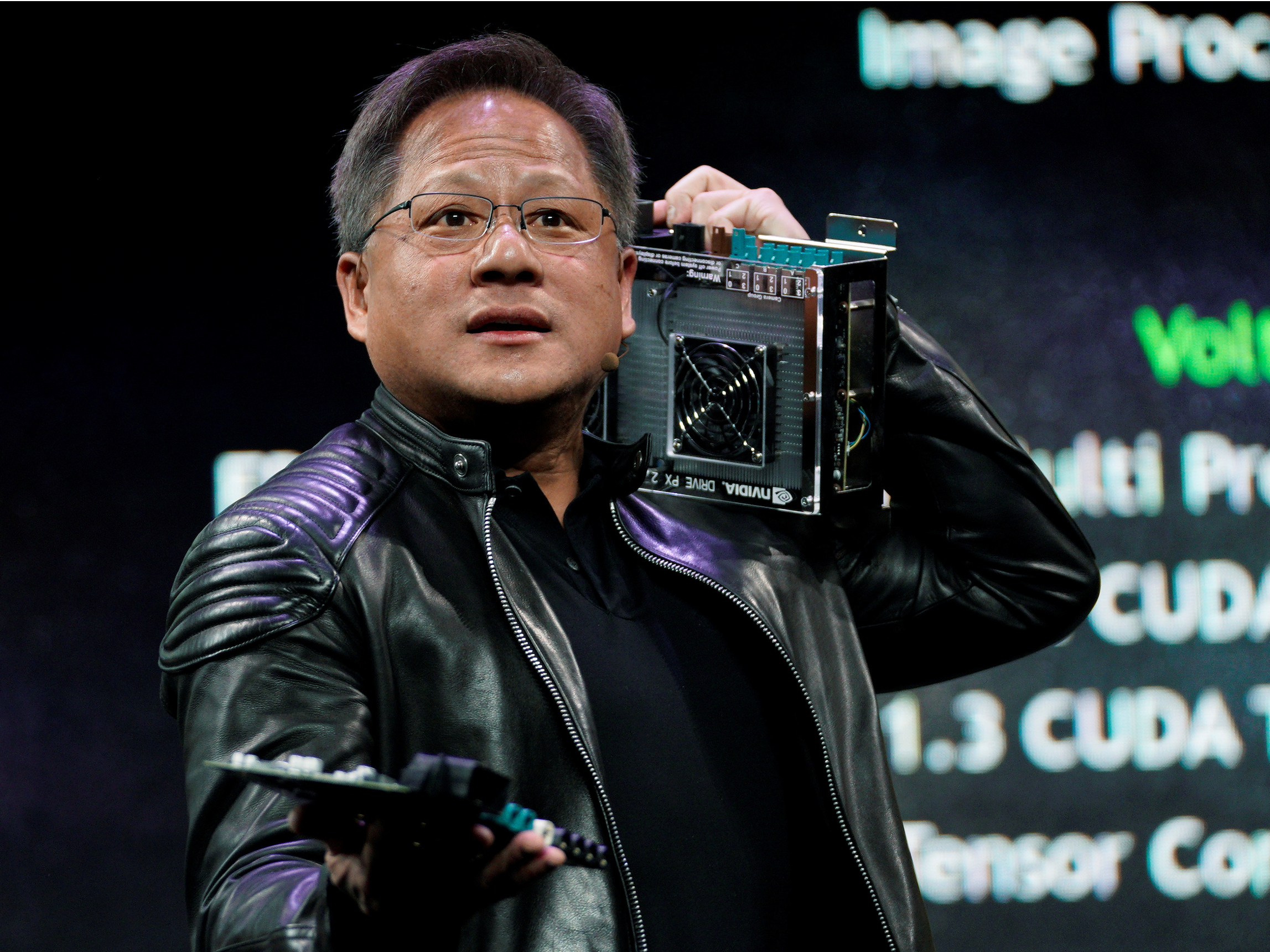- Tesla CEO Elon Musk said on Monday that the electric-car maker has created the world’s best fully autonomous-driving computer.
- But Nvidia, which also makes hardware designed for self-driving cars, said on Tuesday that Tesla made an inaccurate comparison between the companies’ technologies.
- Tesla compared its Full Self-Driving (FSD) Computer against Nvidia’s Drive Xavier computer, saying the FSD Computer has more processing power.
- But Nvidia said in a blog post that Tesla used the wrong Nvidia product for its comparison and misstated the Drive Xavier’s capabilities.
Tesla CEO Elon Musk said on Monday that the electric-car maker has created the world’s best autonomous-driving computer. But Nvidia, which also makes hardware designed for self-driving cars, said on Tuesday that Tesla made an inaccurate comparison between the two companies’ technologies.
During an event for investors centered around autonomous-driving technology, Tesla compared its Full Self-Driving (FSD) Computer against Nvidia’s Drive Xavier computer, saying the FSD Computer has more processing power. According to Tesla, the FSD Computer is capable of 144 trillion operations per second (TOPS), while Nvidia’s Drive Xavier is capable of 21 TOPS.
Nvidia disputed Tesla’s comparison in a blog post, saying the Drive Xavier is capable of 3o TOPS, but is designed for semi-autonomous driver-assistance tasks, rather than complete autonomy. Nvidia’s Drive AGX Pegasus computer, which is designed for full autonomy and capable of 320 TOPS, is a more accurate point of comparison, the company said.
"It's not useful to compare the performance of Tesla's two-chip Full Self Driving computer against Nvidia's single-chip driver assistance system. Tesla's two-chip FSD computer at 144 TOPs would compare against the Nvidia DRIVE AGX Pegasus computer which runs at 320 TOPS for AI perception, localization, and path planning.
"Additionally, while Xavier delivers 30 TOPS of processing, Tesla erroneously stated that it delivers 21 TOPS. Moreover, a system with a single Xavier processor is designed for assisted driving AutoPilot features, not full self-driving. Self-driving, as Tesla asserts, requires a good deal more compute."
Nvidia credited Tesla for focusing on developing the significant computing power necessary for self-driving vehicles, but suggested that Nvidia's technology, by allowing customers to build on top of it, is superior.
"Tesla, however, has the most important issue fully right: Self-driving cars - which are key to new levels of safety, efficiency, and convenience - are the future of the industry. And they require massive amounts of computing performance," Nvidia said. "There are only two places where you can get that AI computing horsepower: Nvidia and Tesla. And only one of these is an open platform that's available for the industry to build on."
Tesla did not immediately respond to a request for comment.
- Read more:
- Tesla's biggest challenge with full-self-driving technology is obvious
- Elon Musk says it's 'basically crazy to buy any other car but a Tesla'
- Tesla is taking direct aim at Uber and Lyft with claims it plans to roll out 1 million robo-taxis by next year
- Elon Musk slams rivals' self-driving-car tech, says 'anyone relying on lidar is doomed'

